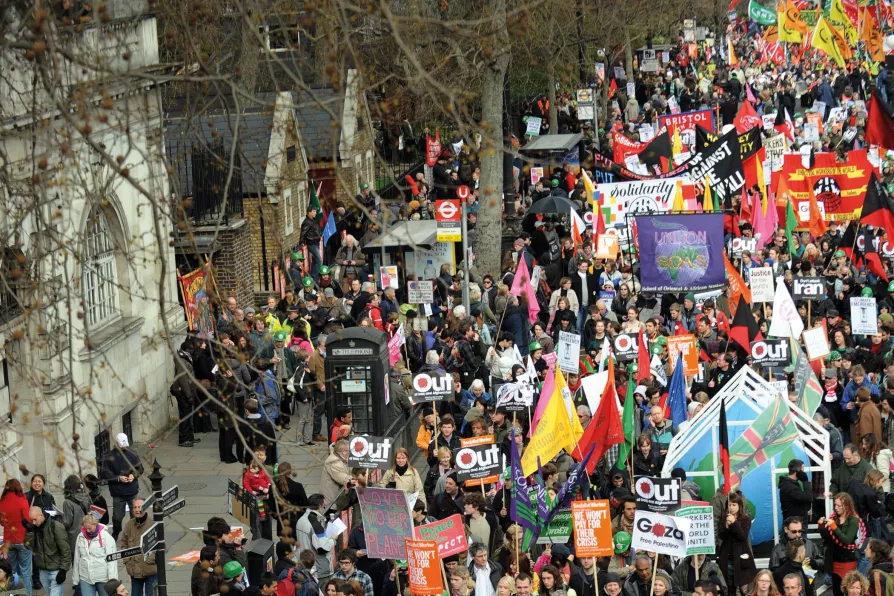The language of humiliation is a step towards a second civil war, argues RAMZY BAROUD

 IN THE BELLY OF THE BEAST:
Thousands of protesters march
against the excesses of
capitalism in London, 2009
IN THE BELLY OF THE BEAST:
Thousands of protesters march
against the excesses of
capitalism in London, 2009
IT WAS the publication of the Communist Manifesto in 1848 and, subsequently, Capital in 1867 that explained that, as capitalism was born within its predecessor, the feudal system, so it is with socialism — it is born within the capitalist system.
As capitalism evolved, its productive force would come into conflict with its relations of production, and at an advanced stage of its development, proletarian revolution would overthrow the capitalist order and establish socialism.
Communists thus looked to the advanced industrial countries in Europe for such revolutions and they were not disappointed with workers’ rebellions and revolutions that took place across Europe in the early and mid-19th century. There were the Luddites, 1811-13, the Merthyr Tydfil armed insurrection in 1831, the Swing Riots in 1830 by agricultural workers in southern and eastern England, and of course the European revolutions of 1848.

BEN CHACKO welcomes a masterful analysis that puts class struggle back at the heart of our understanding of China’s revolution

KEVAN NELSON reports back from a delegation to the epic celebrations for the anniversary of Vietnam’s 1945 revolution, where British communists found a thriving, prosperous socialist country, brimming with ambition and well-earned national pride

KYRIL WHITTAKER looks at what guides Vietnam 50 years after reunification










